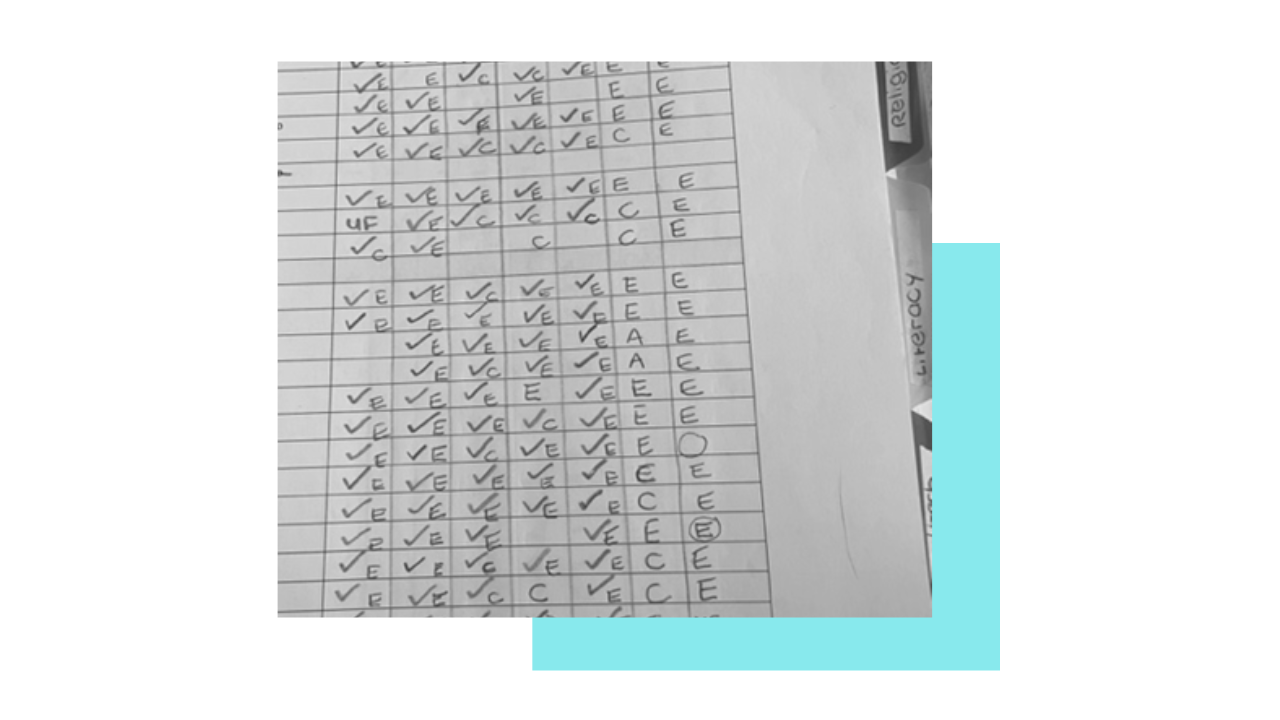My assessment fails
Sep 14, 2023
Earlier this year I was preparing for a conference keynote presentation. The session was looking at assessment, and I was very excited to share my thoughts/ideas and research. I always like to weave personal stories into my work to help illustrate my thoughts (you may have noticed this in my blogs!), so I decided to take a trip down memory lane.
When we moved house I remember coming across some of my old assessment files. So to prepare for my keynote I rummaged through the garage to find them again.
One thing I noticed was how lovely it is looking back at names of students you taught, remembering their quirks and personalities, wondering how old they (!) are and what they might be doing now. This is almost as lovely as running into 'old' students or their parents and getting live updates on their progress.
Just the other day in my daughter's high school parent teacher interview, I realised I taught her teacher's daughter in Year 1/2. I loved hearing that she is doing really well and studying medicine at uni! Another reminder that you just don't know where the students you teach will end up!
Anyway, back to my assessment files...
One thing I noted was there was a lot of data in there!
I had collected, collated and presented some lovely class summaries of assessments that I had completed. From an outside perspective (i.e., the principal) my assessment would have looked comprehensive and diligent.
The thing is, if I am being totally honest, I don’t think it guided my maths teaching all that much.
At its core, the assessment process could be simplified to these three steps:
1.Collecting student data (this needs to be accurate)
2. Interpreting the data (what does it tell us our students know, and what does it suggest they need to learn next)
3. Using the data to guide instruction (choosing the most effective way to teach students the skill/content they need to learn next)
Back in 2003, I think I was missing steps 2 and 3.
As I work with schools, I note that this is a common challenge for teachers.
In classrooms across the world, every day teachers are 'collecting' data.
But often the process of 'collecting' data feels a little like my childhood postage stamp collection. The process of collecting of stamps was time-consuming and they looked great displayed in my stamp album, but I never really did anything with the stamps. I didn’t investigate where they came from, or look at them more closely, I didn’t 'interrogate' the stamps!
This is the same with much of our maths assessment data. We collect it, it looks great in spreadsheets/tables/data walls, but we don't get time, or we lack the knowledge, to interrogate the data and use it to guide our teaching.
One of the things I encourage schools to do, is collect less data, but go deeper on that data. So rather than feeling like you need to have a pre test and a post test for every unit (I am referring particularly to non-number based content here) which can take up a lot of precious class time, consider just assessing around the big ideas in number and using that data to guide your targeted teaching instruction. For example, an assessment like the PVAT (available here) provides accurate data on the critical big idea of place value.
So, if you are beginning some work on Location, instead of asking the students to complete a pre-test on Location, you may find using anecdotal observations (guided by a checklist with specific skills to look for, for example, do they recognise left and right), checks for understanding (chin it) and exit passes as you teach will provide you with enough rich information to guide your instruction in that content area.
Meanwhile, your weekly targeted sessions will focus on the critical big idea of place value at student's point of need. These small group sessions are informed by quality data you have interrogated with you colleagues. So less collection, but deeper interrogation, particularly around the most important content we need students to understand (the Big Ideas in Number).
This week I encourage you to have a look at your 'assessment book' with a critical eye and think- is this data guiding my teaching or am I just 'collecting' data?
Have a great week!
Ange🎲🎓

